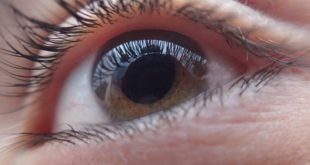
Allergic rhinitis, commonly known as hay fever, affects millions of people worldwide. It occurs when the immune system overreacts to airborne allergens, leading to a range of uncomfortable symptoms. Understanding the causes, symptoms, and treatment options is essential for managing this condition effectively. In this blog post, we’ll explore everything you need to know about allergic rhinitis and how to prevent flare-ups.
What is Allergic Rhinitis?
Allergic rhinitis is an inflammatory condition affecting the nasal passages. It is triggered by exposure to allergens like pollen, dust mites, pet dander, or mold. When an allergic individual inhales these particles, the immune system identifies them as threats and produces an inflammatory response.
Causes of Allergic Rhinitis
Hay fever occurs when the immune system overreacts to substances that are usually harmless. Common allergens include:
- Pollen: From trees, grasses, and weeds, especially during spring and fall.
- Dust mites: Microscopic organisms found in bedding, carpets, and upholstered furniture.
- Pet dander: Skin flakes shed by animals like cats, dogs, and rodents.
- Mold spores: Can grow in damp areas like bathrooms and basements.
- Smoke and strong odors: Environmental factors like cigarette smoke and chemical fumes may also trigger symptoms.
Symptoms:
Allergic rhinitis symptoms vary depending on the severity of exposure and can range from mild to severe. Common symptoms include:
- Sneezing
- Runny or stuffy nose
- Itchy eyes, nose, or throat
- Watery eyes
- Postnasal drip
- Fatigue or feeling of general discomfort
In some cases, hay fever may contribute to other issues like sinus infections, ear infections, and exacerbation of asthma symptoms.
Risk Factors for Allergic Rhinitis
Certain factors increase the likelihood of developing allergic rhinitis:
- Family history: If allergies run in your family, you’re more likely to develop allergic rhinitis.
- Environmental exposure: Living in areas with high pollen counts or pollution can increase your risk.
- Age: Hay fever often develops during childhood or early adulthood, but it can appear at any age.
- Existing allergies or asthma: Those with a history of asthma or eczema are more prone to allergic rhinitis.
Treatment Options:
Managing allergic rhinitis involves reducing exposure to allergens and controlling symptoms. Here are common treatment options:
- Antihistamines: Over-the-counter or prescription medications that block the histamine response, reducing symptoms like sneezing and itching.
- Nasal corticosteroids: Help reduce inflammation in the nasal passages, alleviating stuffiness and congestion.
- Decongestants: Provide short-term relief for a blocked nose but should not be used long-term.
- Immunotherapy (Allergy shots): Gradually exposes your immune system to allergens, reducing sensitivity over time.
- Saline nasal sprays: Flush out allergens from the nasal passages and provide relief from congestion.
- Avoidance of triggers: Reducing exposure to known allergens by keeping windows closed, cleaning often, and using air purifiers.
Prevention:
While it may not be possible to completely avoid allergens, there are ways to reduce the likelihood of allergic rhinitis symptoms:
- Keep windows closed: Especially during high pollen seasons, use air conditioning instead of natural ventilation.
- Use HEPA filters: Air purifiers with HEPA filters can capture pollen, dust, and pet dander, making your indoor environment cleaner.
- Frequent cleaning: Regularly vacuum carpets, clean bedding, and dust surfaces to minimize allergen buildup.
- Shower after outdoor activities: Washing away pollen and dust can reduce exposure, especially during allergy season.
- Avoid smoking or secondhand smoke: Cigarette smoke can irritate the nasal passages, worsening symptoms.
Conclusion
Hay fever can be disruptive, but with proper treatment and prevention measures, it’s possible to manage symptoms and improve quality of life. By understanding the triggers, taking appropriate medications, and making lifestyle adjustments, you can reduce the impact of allergic rhinitis and enjoy a more comfortable living environment.
 Daryeel Magazine
Daryeel Magazine




